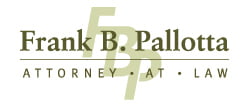The prospect of facing foreclosure can be a daunting and overwhelming experience for homeowners in the state of Georgia. Understanding the foreclosure process and the various options available is crucial for those who find themselves in this situation. Today, we’ll explore the Georgia foreclosure process, from the initial stages to potential outcomes and ways to prevent foreclosure.
1. Initiation of the Foreclosure Process
In Georgia, the foreclosure process typically begins when a homeowner falls behind on their mortgage payments. The lender will send a Notice of Default, giving the borrower a specific time frame to cure the default, which is typically 30 days. If the borrower doesn’t bring the loan current within that period, the foreclosure process proceeds.
2. Notice of Sale
Once the Notice of Default has expired and the default remains uncured, the lender will file a Notice of Sale with the county where the property is located. This notice will specify the date, time, and location of the foreclosure sale, typically held on the courthouse steps.
3. Foreclosure Sale
On the scheduled sale date, the property will be auctioned off to the highest bidder. The sale is typically conducted by a substitute trustee appointed by the lender. Georgia uses the non-judicial foreclosure process, which means that the lender can foreclose on the property without court involvement.
4. Redemption Period
After the foreclosure sale, the borrower has a limited period, typically 30 days, to redeem the property by paying the full amount owed, including fees and costs associated with the foreclosure. If the redemption period expires without redemption, the winning bidder becomes the new owner of the property.
5. Deficiency Judgment
In Georgia, the lender may seek a deficiency judgment if the sale proceeds do not cover the full amount owed. This judgment allows the lender to pursue the borrower for the remaining balance.
6. Ways to Prevent Foreclosure
While foreclosure is a serious matter, homeowners in Georgia have several options to prevent it:
a. Loan Modification: Borrowers can negotiate with the lender to modify the terms of the mortgage, such as reducing the interest rate or extending the loan term, to make it more affordable.
b. Forbearance: Lenders may offer a temporary forbearance, allowing the borrower to pause or reduce payments for a specified period due to financial hardship.
c. Short Sale: If the homeowner cannot afford to keep the property, they may attempt a short sale, which involves selling the property for less than what is owed on the mortgage.
d. Deed in Lieu of Foreclosure: In some cases, the borrower may voluntarily transfer the property back to the lender, avoiding the foreclosure process.
e. Bankruptcy: Filing for bankruptcy can temporarily halt the foreclosure process, giving the homeowner more time to address their financial issues.
The Georgia foreclosure process can be complex and stressful for homeowners facing financial difficulties. However, it’s essential to remember that there are options available to help mitigate the impact of foreclosure and, in some cases, prevent it altogether. Seeking legal counsel and exploring these options is crucial when navigating this challenging process. If you’re facing foreclosure, don’t hesitate to reach out to professionals who can provide guidance and support during this difficult time.
At Frank B. Pallotta Law we are licensed Real Estate Lawyers with 20 years of experience helping our clients in Georgia navigate real estate law. If you are concerned about a potential foreclosure, we can help you learn more about your options, connect you with the right lenders, or get you started on the process so it’s met with ease and stable plan. Reach out to us with your questions.

